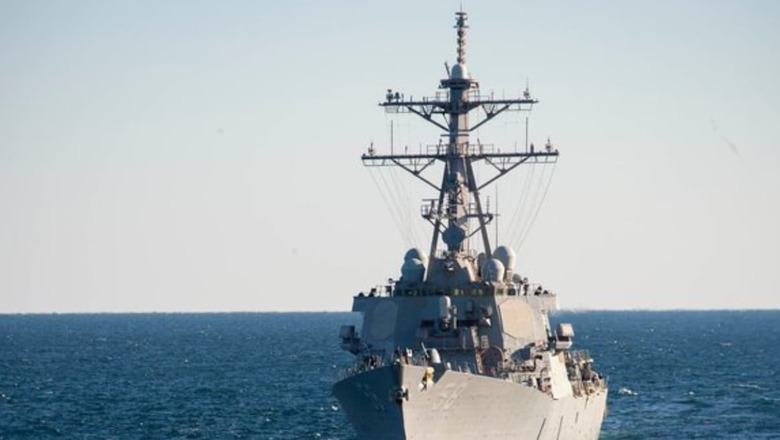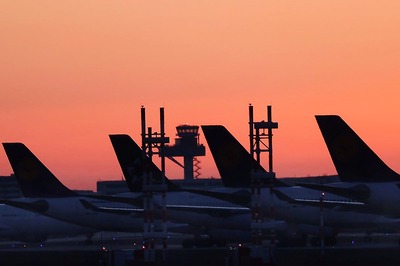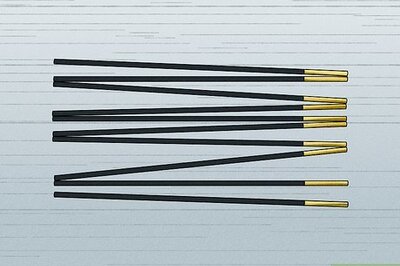
views
An Indian-flagged crude oil tanker in the Red Sea reported that it was hit by an attack drone fired by Houthi militants, the US military said Saturday. The Gabon-owned tanker MV Saibaba reported no injuries from the strike, Central Command said in a post on X.
At around 8 pm (Sanaa time), the US military received reports of two ships in the Southern Red Sea coming under attack. The M/V Blaamanen, a Norwegian-flagged chemical/oil tanker, reported a near miss by a Houthi attack drone with no injuries or damage. The second vessel, M/V Saibaba, a Gabon-owned, Indian-flagged crude oil tanker, reported being hit by a one-way attack drone with no injuries.
On December 23 two Houthi anti-ship ballistic missiles were fired into international shipping lanes in the Southern Red Sea from Houthi controlled areas of Yemen. No ships reported being impacted by the ballistic missiles.Between 3 and 8 p.m. (Sanaa time), the USS LABOON (DDG… pic.twitter.com/jcBisbXBaS
— U.S. Central Command (@CENTCOM) December 24, 2023
‘Attack Was Unsuccessful’
Sources said the “attack was unsuccessful and the vessel was not hit.” They said the ship had 25 Indians in the crew and all are safe. These incidents mark the 14th and 15th attacks on commercial shipping by Houthi militants since October 17. This comes a day after a Japanese-owned chemical tanker struck Saturday off the coast of India in a targetted drone “fired from Iran,” according to the Pentagon. Tehran has denied these accusations. The attack came amid a flurry of new drone and missile attacks by Yemen’s Iran-backed Houthi rebels on the vital Red Sea shipping lane since the start of the Israel-Hamas war on October 7, with the group claiming to act in solidarity with Gaza.
Last month, an Israeli-owned cargo ship was hit in a suspected drone attack by Iran’s Islamic Revolutionary Guard Corps in the Indian Ocean. The Malta-flagged vessel managed by an Israeli-affiliated company was reportedly damaged when the unmanned aerial vehicle exploded close to it, according to Ambrey.
The attacks on commercial ships have led to the rerouting of global trade away from the crucial maritime artery for consumer goods and energy supplies. Oil, natural gas, grain, and everything from toys to electronics typically travel through the waterway separating Africa and the Arabian Peninsula en route to the Suez Canal. Some of the world’s largest container shipping companies and oil giant BP are sending vessels on longer journeys that bypass the Red Sea.
(With inputs from Akash Sharma)




















Comments
0 comment